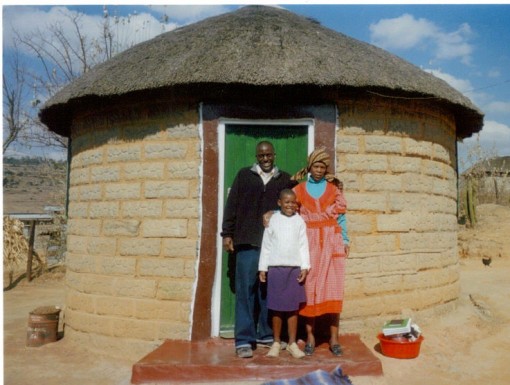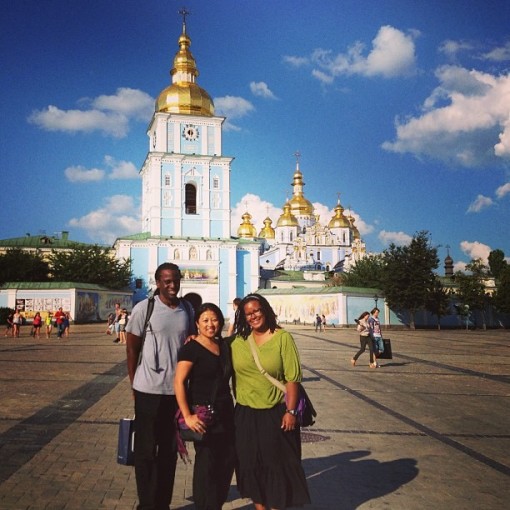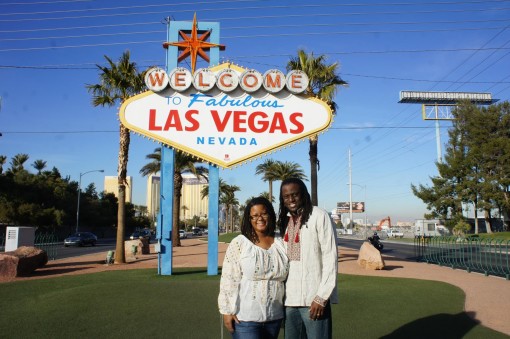I am so happy to share this interview with you all from Returned Peace Corps Volunteer Byron!
He’s served not once but TWICE and has tons of amazing memories.
Check out the interview below:
1. Please introduce yourself.
|
2. What sparked your interest in joining the Peace Corps?
Since I was in the 10th grade I had a strong desire to live internationally. Towards the end of college I discovered the professional opportunity with Peace Corps and never considered another option. It all started with a chance conversation at a career fair with a Peace Corps recruiter that stuck with me.
3. As black American traveler, what advice would you give to others inspired to join the Peace Corps but afraid to take the first step?
Before starting your application take the time to converse with at least two people of color (hopefully who identify as Black) : a Peace Corps staff member who served in Peace Corps and works for the agency and one who doesn’t work for the agency. Take the time to hear what people did in country, why they chose to serve, what their average day was like, what their challenges were and so on. Keep in mind I recommend at least two but depending on your curiosity it can be more. And if your parent is heavily involved in this decision have them with you when you talk with people who have served.
4. What is the most interesting experience you’ve had in the countries you’ve served?
In Lesotho it was the fact of being able to blend in since I’m dark-skinned like many of the people of Lesotho. With my language skills it enabled me to hear what other people who didn’t speak Sesotho well couldn’t hear. My skin tone also was a magnet for conversations revolving around the slave trade and the state of Black Americans in the United States. Never in a million years did I think I’d have to explain slavery and its effect on Black America while living in Africa but I quickly came to the realization that many Basotho were not aware because it is not taught in school. There was a disconnect between the famous Black Americans they saw in the media and me as an average, everyday Black American.
While in Ukraine some of my more interesting experiences included Ukrainians inquiring about my locs, African students wanting me to teach them to speak like I speak in English to “get rid” of their accent, and many times when Ukrainians were just plain shocked to hear me speak Ukrainian. My Ukrainian wasn’t spectacular but with what I knew, just the simple fact I spoke what I knew opened so many doors and gained me much respect with people from all backgrounds. Grandmothers to school children to university faculty to grocery store workers to he guys I played basketball with regularly.
5. How did people in Ukraine react when you told them you were a PCV?
For me to tell them I was a PCV was not surprising. What tended to throw them off was when they found out I was American and not African, African meaning not directly from the continent. They were accustomed to African university students being in their country but not a working professional Black person like myself. Many times I felt like a celebrity due to the photos and such. I was also very aware to initiate conversations around race when I felt the person, American, African, or European could handle it. I was all about having educational conversations with those people who were mature enough to tackle such topics, mindsets, and viewpoints.
6. Why did you decide to serve for a second time and was the application process the same?
I loved my first service in Africa so much that I knew some time in my life I’d serve a second time. Just so happened I met my wife who had developed a strong desire to serve in Peace Corps well before she had met me. After we had been married for a few years and the time was right we discussed and agreed we’d do PC together. The application the second time around was the same as the first but it was more involved in the sense PC had to consider us together, as one, instead of it just being me. With our recruiter, Elene Hertweck out of the Northern Calif Regional Recruitment Office, she made it easier because she was always working hard to make sure we had all of our paperwork in to be considered for programs she thought we’d both be competitive for. We had our reservations about Ukraine when we accepted the assignment but it ended up being the best program for us and our future.
7. Where can people get in touch with you if they have any questions (Leave your social media info and blog link if you’d like!)
You can find me on twitter @ByronLWilliams or IG at ByronLWilliams.


